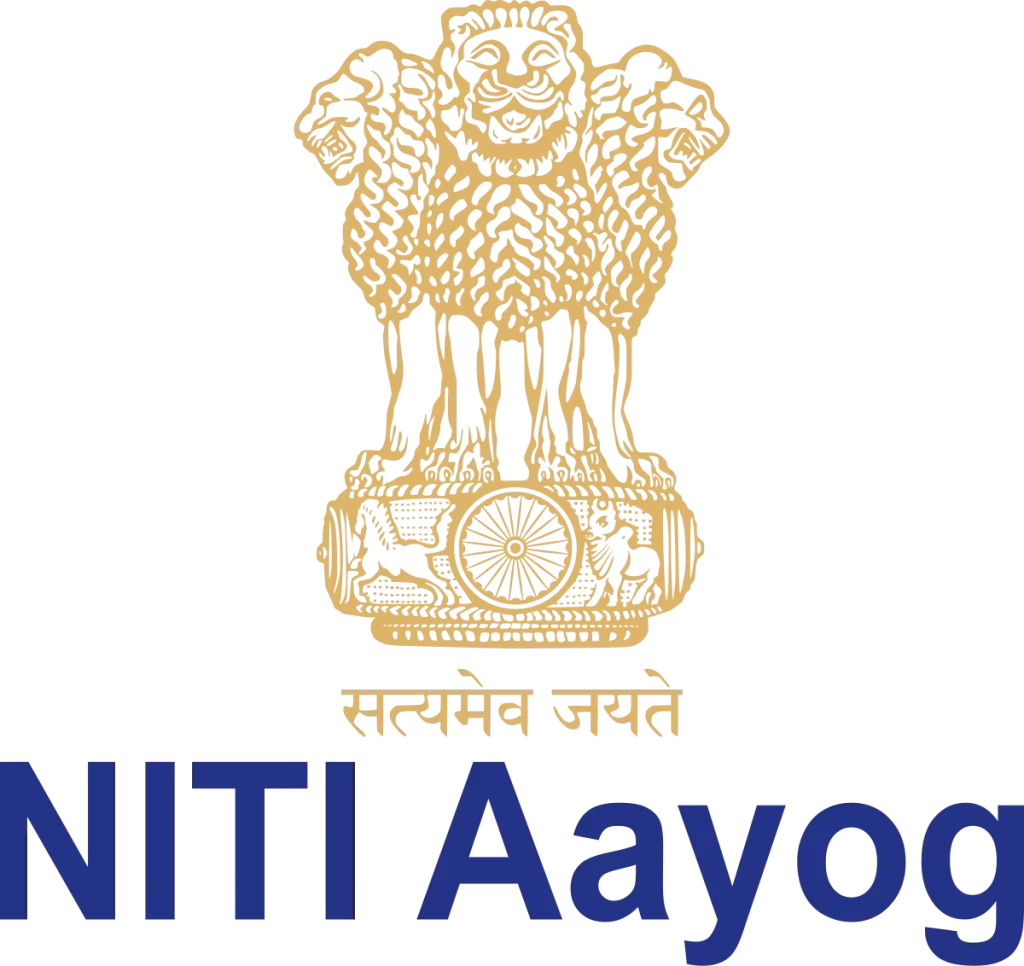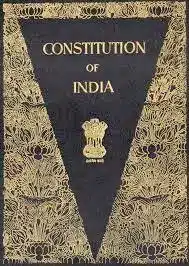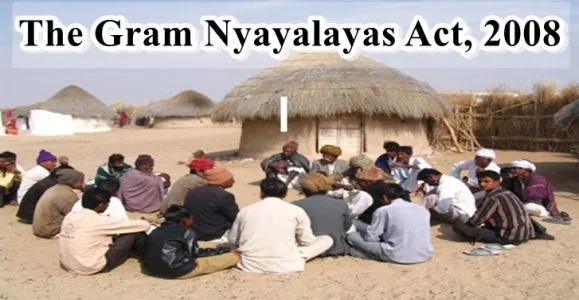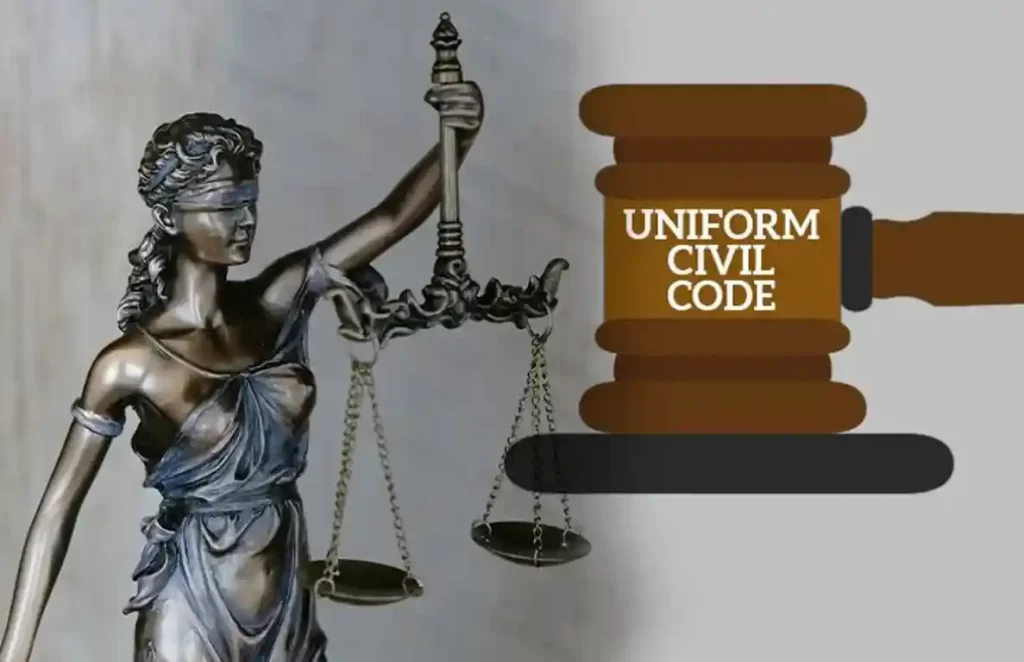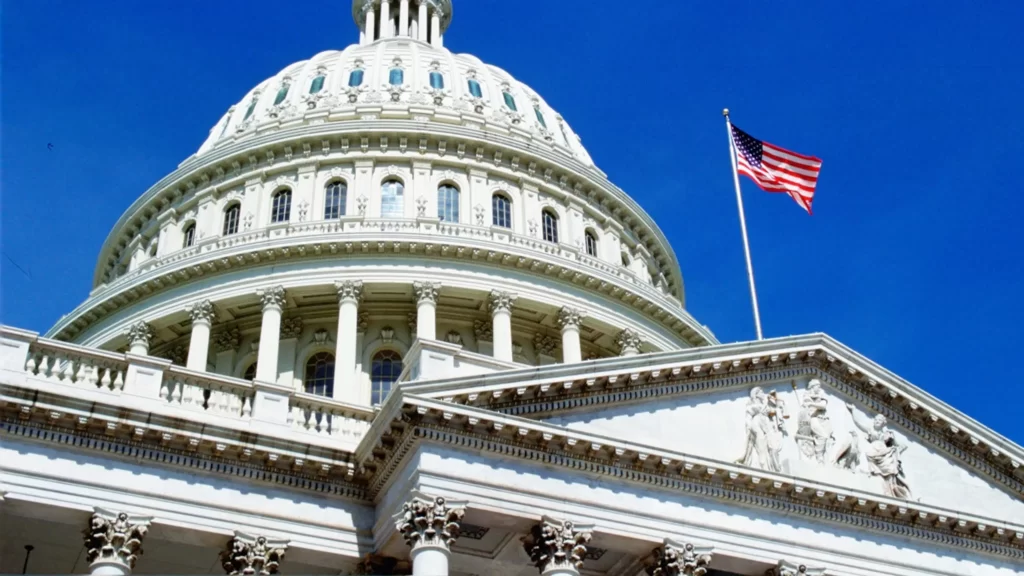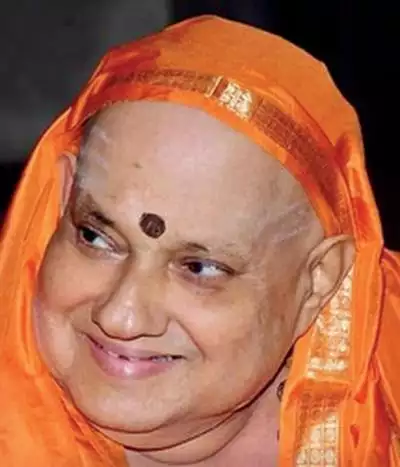About Constitutional Bodies
- In the context of India, a Constitutional Body refers to an institution or authority that derives its powers and responsibilities directly from the Constitution of India.
- These bodies are explicitly mentioned in the Constitution, making them a fundamental part of the country’s governance and administrative structure.
- A Constitutional Body of India is also entrusted with performing specific functions to uphold democratic governance and ensure the effective implementation of constitutional mandates.
List of Important Constitutional Bodies
Election Commission of India: Constitutional Bodies
About
- The Election Commission is a permanent and independent body established by the Constitution of India directly to ensure free and fair elections in the country.
- Constitutional Provision(s): Article 324
Composition
- The Election Commission shall consist of the chief election commissioner and such number of other election commissioners, if any, as the president may from time to time fix.
- The appointment of the chief election commissioner and other election commissioners shall be made by the president.
- At Present: Election Commission consists of Chief Election Commissioner and Two Election Commissioners.
- When any other election commissioner is so appointed, the chief election commissioner shall act as the chairman of the election commission.
- The president may also appoint after consultation with the election commission such regional commissioners as he may consider necessary to assist the election commission.
- The conditions of service and tenure of office of the election commissioners and the regional commissioners shall be determined by the president.
Appointment
- By the President of India on the recommendation of a three-membered Selection Committee consisting of:
- The Prime Minister of India
- A Union Minister nominated by the Prime Minister
- The Leader of Opposition (LoP) in the Lok Sabha
Procedure for Removal
- Chief Election Commissioner can be removed in the same manner and on the same grounds as a judge of the Supreme Court.
- Other Election Commissioners can be removed on the recommendation of the Chief Election Commissioner.
- The Chief Election Commissioner and Election Commissioners may be Removed from office through a motion adopted by Parliament on grounds of ‘Proven misbehavior or incapacity’.
- Removal requires a special majority of 2/3rd members present and voting supported by more than 50% of the total strength of the house.
- The Constitution does not use the word ‘impeachment’, for the removal of the judges, CAG, CEC.
- The term ‘Impeachment’ is only used for removing the President which requires the special majority of 2/3rd members of the total strength of both the houses which is not used elsewhere.
Condition of Service
- The conditions of service and tenure of office of the election commissioners and the regional commissioners shall be determined by the president.
- The chief election commissioner is provided with the security of tenure. He cannot be removed from his office except in the same manner and on the same grounds as a judge of the Supreme Court.
- Tenure: 6 years or until they attain the age of 65 years, whichever is earlier.
- Post-Tenure Appointment(s): Eligible for further appointment by the Union Government.
Powers & Functions
- The Election Commission has Administrative, Advisory, and Quasi-Judicial functions.
Union Public Service Commission: Constitutional Bodies
About
- The Union Public Service Commission (UPSC) is the central recruiting agency in India.
- The Constitution visualizes the UPSC to be the ‘watch-dog of merit system’ in India.
- Constitutional Provision(s): Article 315 to Article 323
Composition
- The UPSC consists of a chairman and other members appointed by the President of India.
- Tenure: 6 years or until they attain the age of 65 years, whichever is earlier.
Removal
- The President can remove the chairman or any other member of UPSC from the office in cases (a) If he is adjudged an insolvent (that is, has gone bankrupt); (b) If he engages, during his term of office, in any paid employment outside the duties of his office; or (c) If he is, in the opinion of the president, unfit to continue in office by reason of infirmity of mind or body.
- In case of ground of ‘Misbehavior’, the President has to refer the matter to the Supreme Court for an enquiry. If the Supreme Court upholds the cause of removal and advises so, the President can remove the Chairman or a member of the UPSC.
Post-Tenure Appointment(s)
- Chairman is not eligible for any further employment.
- Other members are eligible for appointment as the Chairman of UPSC or a State Public Service Commission, but not for any other employment.
- The Chairman or a member is not eligible for the second term.
Functions
- It conducts examinations for appointments to the all-India services, Central services, and public services of the centrally administered territories.
- It assists the states (if requested by two or more states to do so) in framing and operating schemes of joint recruitment for any services for which candidates possessing special qualifications are required.
- It serves all or any of the needs of a state on the request of the state governor and with the approval of the president of India.
- It is consulted on matters related to personnel management.
State Public Service Commission: Constitutional Bodies
About
- Parallel to the Union Public Service Commission (UPSC) at the Centre, there is a State Public Service Commission (SPSC) in a state.
- The Constitution visualizes the SPSC to be the ‘watchdog of the merit system’ in the state.
- Constitutional Provision(s): Article 315 to Article 323
Composition
- A State Public Service Commission consists of a chairman and other members appointed by the governor of the state.
Removal
- Although the chairman and members of an SPSC are appointed by the governor, they can be removed only by the president (and not by the governor).
- In case of ground of ‘Misbehavior’, the President has to refer the matter to the Supreme Court for an enquiry. If the Supreme Court upholds the cause of removal and advises so, the President can remove the Chairman or a member of the SPSC.
Post-Tenure Appointment(s)
- Chairman is eligible for appointment as the Chairman or a member of the UPSC or as the chairman of any other SPSC, but not for any other employment.
- Other members are eligible for appointment as the chairman or a member of the UPSC or as the chairman of that SPSC or any other SPSC, but not for any other employment.
- The Chairman or a member is not eligible for the second term.
Functions
- An SPSC performs all those functions in respect of the state services as the UPSC does in relation to the Central services.
Finance Commission: Constitutional Bodies
- Article 280 of the Constitution of India provides for a Finance Commission as a quasi-judicial body. It is constituted by the president of India every fifth year or at such earlier time as he considers necessary.
Composition
- The Finance Commission consists of a chairman and four other members to be appointed by the president.
Functions
- The Finance Commission is required to make recommendations to the president of India on the following matters:
- The distribution of the net proceeds of taxes to be shared between the Centre and the states, and the allocation between the states of the respective shares of such proceeds.
- The principles that should govern the grants-in-aid to the states by the Centre (i.e., out of the consolidated fund of India).
- The measures needed to augment the consolidated fund of a state to supplement the resources of the panchayat’s and the municipalities in the state on the basis of the recommendations made by the state finance commission.
- Any other matter referred to it by the president in the interests of sound finance.
Advisory Role
- The recommendations made by the Finance Commission are only of advisory nature. Hence, its recommendations are not binding on the government.
National Commission for SCs: Constitutional Bodies
About
- The National Commission for Scheduled Castes (SCs) is a constitutional body in the sense that it is directly established by Article 338 of the Constitution.
- Originally, Article 338 of the Constitution provided for the appointment of a Special Officer for Scheduled Castes (SCs) and Scheduled Tribes (STs) to investigate all matters relating to the constitutional safeguards for the SCs and STs and to report to the President on their working.
- Composition: A Chairperson, a Vice-Chairperson, and three other members.
- Appointment: By the President of India.
- Tenure: 3 years
- Post-Tenure Appointment(s): Not eligible for the appointment for more than two terms.
Functions
- To investigate and monitor all matters relating to the constitutional and other legal safeguards for the SCs and to evaluate their working;
- To inquire into specific complaints with respect to the deprivation of rights and safeguards of the SCs;
- To participate and advise on the planning process of socio-economic development of the SCs and to evaluate the progress of their development under the Union or a state;
- To present to the President, annually and at such other times as it may deem fit, reports upon the working of those safeguards;
- To make recommendations as to the measures that should be taken by the Union or a state for the effective implementation of those safeguards and other measures for the protection, welfare and socio-economic development of the SCs; and
- To discharge such other functions in relation to the protection, welfare and development and advancement of the SCs as the president may specify.
Reports
- The commission presents an annual report to the president. It can also submit a report as and when it thinks necessary.
- The President places all such reports before the Parliament, along with a memorandum explaining the action taken on the recommendations made by the Commission.
Power
- The Commission is vested with the power to regulate its own procedure. The Commission, while investigating any matter or inquiring into any complaint, has all the powers of a civil court trying a suit and in particular in respect of the following matters:
- summoning and enforcing the attendance of any person from any part of India and examining him on oath;
- requiring the discovery and production of any document;
- receiving evidence on affidavits;
- requisitioning any public record from any court or office;
- issuing a summons for the examination of witnesses and documents; and
- any other matter which the President may determine
The Central government and the state governments are required to consult the Commission on all major policy matters affecting the SCs.
National Commission for STs: Constitutional Bodies
About
- Like the National Commission for Schedules Castes (SCs), the National Commission for Scheduled Tribes (STs) is also a constitutional body in the sense that it is directly established by Article 338-A of the Constitution.
- The Commission was established under Article 338 of the Constitution with the objective of monitoring all the safeguards provided for the SCs and STs under the Constitution or other laws.
Functions
- To investigate and monitor all matters relating to the constitutional and other legal safeguards for the STs and to evaluate their working;
- To inquire into specific complaints with respect to the deprivation of rights and safeguards of the STs;
- To participate and advise on the planning process of socio-economic development of the STs and to evaluate the progress of their development under the Union or a state;
- To present to the President, annually and at such other times as it may deem fit, reports upon the working of those safeguards;
- To make recommendations as to the measures that should be taken by the Union or a state for the effective implementation of those safeguards and other measures for the protection, welfare and socio-economic development of the STs; and
- To discharge such other functions in relation to the protection, welfare and development and advancement of the STs as the President may specify.
Reports
- The Commission presents an annual report to the President. It can also submit a report as and when it thinks necessary.
Powers
- The Commission, while investigating any matter or inquiring into any complaint, has all the powers of a civil court trying a suit and in particular in respect of the following matters:
- summoning and enforcing the attendance of any person from any part of India and examining him on oath;
- requiring the discovery and production of any document;
- receiving evidence on affidavits;
- requisitioning any public record from any court or office;
- issuing a summons for the examination of witnesses and documents; and
- any other matter which the President may determine.
National Commission for Backward Classes: Constitutional Bodies
- Constitutional Provision(s): Article 338-B
- Constitutional Amendment Act: 102nd Constitutional Amendment Act of 2018
- Composition: A Chairperson, a Vice-Chairperson, and three other members.
- Appointment: By the President of India.
- Tenure: 3 years.
- Post-Tenure Appointment(s): Not eligible for the appointment for more than two terms.
- Functions: To provide safeguards against the exploitation of the socially and educationally Backward Classes (BCs) as well as to protect their social, economic, educational, and cultural interests.
Goods and Services Tax Council: Constitutional Bodies
| Constitutional Provision(s) | Article 279-A |
| Constitutional Amendment Act | 101st Constitutional Amendment Act of 2016 |
| Composition | – The Union Finance Minister as the Chairperson. – The Union Minister of State in charge of Revenue or Finance. – The Minister in charge of Finance or Taxation or any other Minister nominated by each State Government. Note: The Chairperson of the Central Board of Indirect Taxes and Customs (CBlC) is a permanent invitee (non-voting) to all proceedings of the Council. |
| Secretariat | New Delhi |
| Ex-Officio Secretary | The Union Revenue Secretary |
| Functions | To make recommendations to the Centre and the states on the following matters: – The taxes, cesses and surcharges levied by the Centre, the States and the local bodies that would get merged in GST. – The goods and services that may be subjected to GST or exempted from GST. – Model GST Laws, principles of levy, apportionment of GST levied on supplies in the course of inter-state trade or commerce, and the principles that govern the place of supply and so on, etc. |
Special Officer for Linguistic Minority: Constitutional Bodies
About
- In pursuance of the provision of Article 350-B of the Constitution, the office of the Special Officer for Linguistic Minorities was created in 1957.
- Constitutional Amendment Act: 7th Constitutional Amendment Act of 1956
- Composition: The Commissioner for Linguistic Minorities (CLM) [One membered body].
- Headquarters: New Delhi
- Regional Offices: Belgaum (Karnataka), Chennai (Tamil Nadu) and Kolkata (West Bengal).
- The Commissioner takes up all the matters pertaining to the grievances arising out of the non-implementation of the Constitutional and Nationally Agreed Scheme of Safeguards provided to linguistic minorities that come to its notice or are brought to its knowledge by the linguistic minority individuals, groups, associations or organisations at the highest political and administrative levels of the state governments and UT administrations and recommends remedial actions to be taken.
Functions
- To investigate all matters related to safeguards provided to the linguistic minorities
- To submit to the President of India, the reports on the status of implementation of the Constitutional and the nationally agreed safeguards for the linguistic minorities
- To monitor the implementation of safeguards through questionnaires, visits, conferences, seminars, meetings, review mechanisms, etc.
Objectives
- To provide equal opportunities to the linguistic minorities for inclusive development and national integration
- To spread awareness amongst the linguistic minorities about the safeguards available to them
- To ensure effective implementation of the safeguards provided for the linguistic minorities in the Constitution and other safeguards, which are agreed to by the states / U.Ts.
- To handle the representations for redress of grievances related to the safeguards for linguistic minorities.
Comptroller and Auditor General of India: Constitutional Bodies
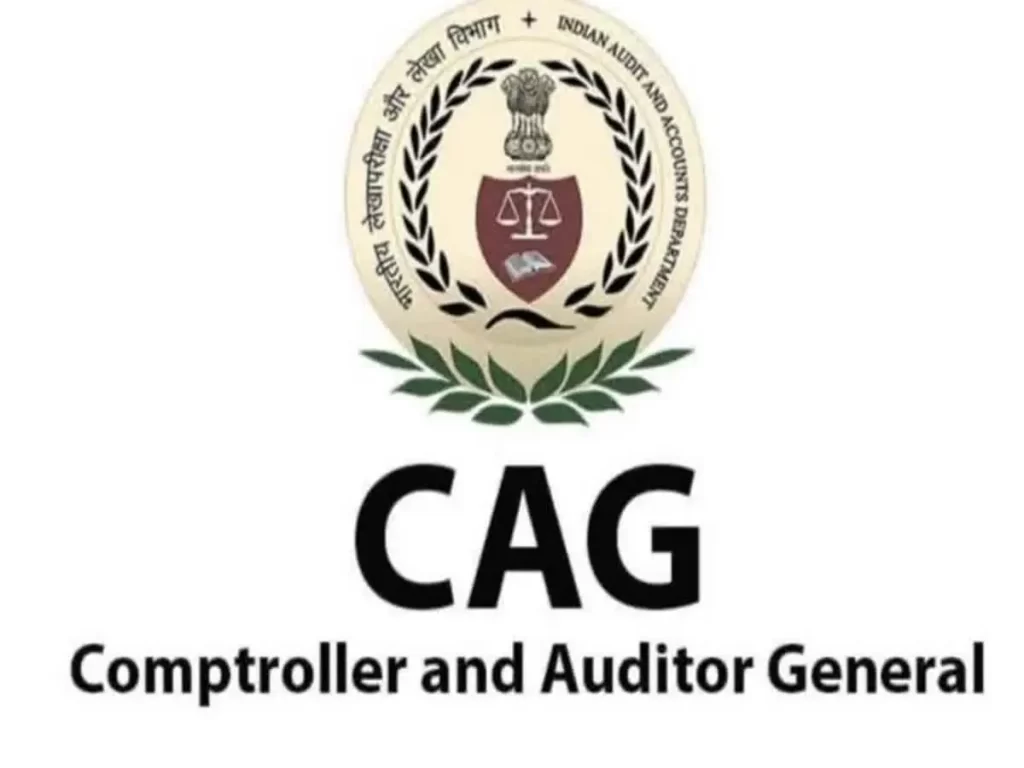
- The Constitution of India (Article 148) provides for an independent office of the Comptroller and Auditor General of India (CAG).
- He is the head of the Indian Audit and Accounts Department.
Appointment
- The CAG is appointed by the president of India by a warrant under his hand and seal.
Procedure for Removal
- The Chief Election Commissioner and Election Commissioners may be Removed from office through a motion adopted by Parliament on grounds of ‘Proven misbehavior or incapacity’.
- Removal requires a special majority of 2/3rd members present and voting supported by more than 50% of the total strength of the house.
- The Constitution does not use the word ‘impeachment’, for the removal of the judges, CAG, CEC.
- The term ‘Impeachment’ is only used for removing the President which requires the special majority of 2/3rd members of the total strength of both the houses which is not used elsewhere.
Duties and Powers
- The Constitution (Article 149) authorizes the Parliament to prescribe the duties and powers of the CAG in relation to the accounts of the Union and of the states and of any other authority or body.
- Accordingly, the Parliament enacted the CAG’s (Duties, Powers and Conditions of Service) act, 1971.
Role
- The role of CAG is to uphold the Constitution of India and the laws of Parliament in the field of financial administration.
- The accountability of the executive (i.e., the council of ministers) to the Parliament in the sphere of financial administration is secured through audit reports of the CAG.
- The CAG is an agent of the Parliament and conducts an audit of expenditure on behalf of the Parliament.
- Therefore, he is responsible only to Parliament.
CAG and Corporations
- The role of CAG in the auditing of public corporations is limited.
- Broadly speaking, his relationship with public corporations falls into the following three categories:
- Some corporations are audited totally and directly by the CAG, for example, Damodar Valley Corporation, Oil and Natural Gas Commission, Air India, Indian Airlines Corporation, and others.
- Some other corporations are audited by private professional auditors who are appointed by the Central Government in consultation with the CAG. If necessary, the CAG can conduct a supplementary audit. The examples are Central Warehousing Corporation, Industrial Finance Corporation, and others.
- Some other corporations are totally subjected to private audit. In other words, their audit is done exclusively by private professional auditors and the CAG does not come into the picture at all. They submit their annual reports and accounts directly to the Parliament. Examples of such corporations are Life Insurance Corporation of India, Reserve Bank of India, State Bank of India, Food Corporation of India, and others.
Attorney General of India: Constitutional Bodies
- The Constitution (Article 76) has provided for the office of the Attorney General for India.
- He is the highest law officer in the country.
Appointment & Term
- The Attorney General (AG) is appointed by the president.
- He must be a person who is qualified to be appointed a judge of the Supreme Court.
- The term of office of the AG is not fixed by the Constitution.
Duties and Functions
- As the chief law officer of the Government of India, the duties of the AG include the following:
- To give advice to the Government of India upon such legal matters, which are referred to him by the president.
- To perform such other duties of a legal character that are assigned to him by the president.
- To discharge the functions conferred on him by the Constitution or any other law.
The president has assigned the following duties to the AG:
- To appear on behalf of the Government of India in all cases in the Supreme Court in which the Government of India is concerned.
- To represent the Government of India in any reference made by the president to the Supreme Court under Article 143 of the Constitution.
- To appear (when required by the Government of India) in any high court in any case in which the Government of India is concerned.
Rights and Limitations
- In the performance of his official duties, the Attorney General has the right of audience in all courts in the territory of India.
- Further, he has the right to speak and to take part in the proceedings of both the Houses of Parliament or their joint sitting and any committee of the Parliament of which he may be named a member, but without a right to vote.
- He enjoys all the privileges and immunities that are available to a member of Parliament.
Following limitations are placed on the Attorney General in order to avoid any complication and conflict of duty:
- He should not advise or hold a brief against the Government of India.
- He should not advise or hold a brief in cases in which he is called upon to advise or appear for the Government of India.
- He should not defend accused persons in criminal prosecutions without the permission of the Government of India.
He should not accept appointment as a director in any company or corporation without the permission of the Government of India.
Advocate General of the State: Constitutional Bodies
- The Constitution (Article 165) has provided for the office of the advocate general for the states.
- He is the highest law officer in the state.
- Thus he corresponds to the Attorney General of India.
Appointment & Term
- The advocate general is appointed by the governor.
- He must be a person who is qualified to be appointed a judge of a high court.
- The term of office of the advocate general is not fixed by the Constitution.
Duties & Functions
As the chief law officer of the government in the state, the duties of the advocate general include the following:
- To give advice to the government of the state upon such legal matters which are referred to him by the governor.
- To perform such other duties of a legal character that is assigned to him by the governor.
- To discharge the functions conferred on him by the Constitution or any other law.
Also refer:
Difference Between Procedure Established by Law and Due Process of Law
Download Topic-wise PDF
- Polity MCQ PDF
- Top 50 MCQs on the Indian Economy
- प्राचीन भारतीय इतिहास के 50 महत्वपूर्ण प्रश्न
- Top 50 Science MCQs For Competitive Exams
- Top 50 Science Questions From Previous Year UPSC Prelims
- Top 25 MCQs on Virus
- Previous Year’s Questions Of UPSC On Human Diseases
- Previous Year Questions Of UPSC On Oceanography And Climatology
- Important MCQs Based On World Physical Features From UPSC Prelims

